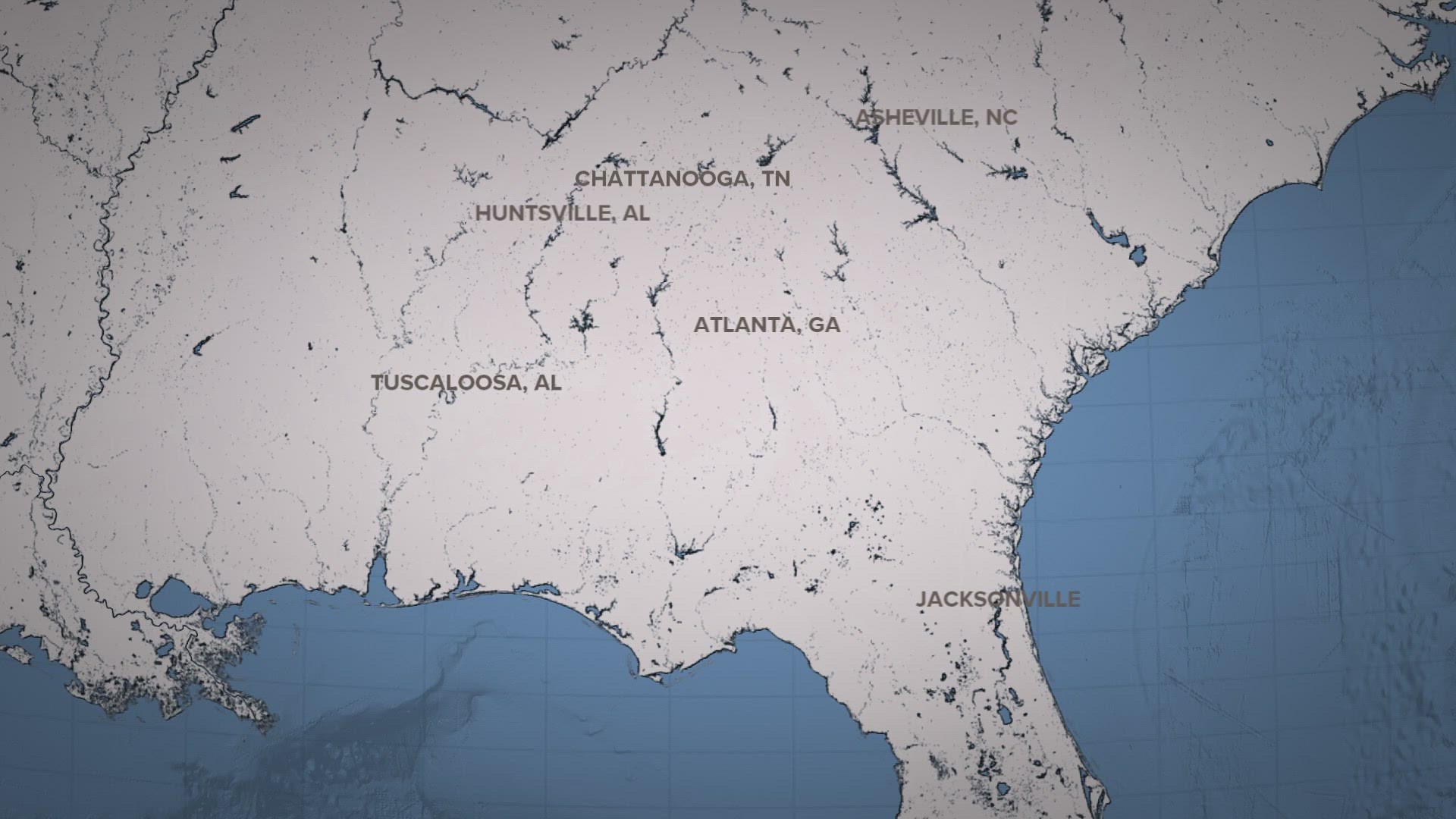JACKSONVILLE, Fla. — If you are planning a last-minute road trip to see Monday's solar eclipse, here's a look at some cities driving distance from Jacksonville where you can see at least 80% totality.
Although the First Coast isn't in the path of totality, we will see a partial eclipse.
Jacksonville is expected to see 64% of the sun blocked by the moon.
The weather will play a big factor in the decision, as a cold front and isolated storms are forecasted to move across several cities in the viewing area.
Northern Alabama, across Tennessee and into the western part of North Carolina could see cloudy conditions around the time of the eclipse Monday afternoon.
Here's a look at some places you can travel to view the eclipse.
Atlanta, Georgia
Atlanta is a five-hour drive from Jacksonville, the closest out of all the destinations on this list.
Atlanta will see 81.9% totality and is projected to have the best weather moving into Monday, compared to other neighboring cities.
Several parks and colleges in Atlanta are hosting free viewing parties to watch the solar eclipse.
The eclipse will start at 1:45 p.m. local time and will peak at about 3:05 p.m. It will conclude around 4:20 p.m. local time, according to TimeandDate.
Chattanooga, Tennessee
Chattanooga is just under seven hours from Jacksonville if you drive, but travelers should expect an 88.1% totality for Monday's solar eclipse.
An isolated storm impacting Monday afternoon could bring cloud cover to the area, blocking the view of the eclipse.
According to TimeandDate, the eclipse will begin at 1:45 p.m. local time and will peak at 3:05 p.m. in most areas in Tennessee, ending at 4:26 p.m.
Asheville, North Carolina
Asheville is a seven-hour drive from Jacksonville and could see the eclipse at 84.6% totality.
Isolated storms could bring cloudy conditions to the area.
The eclipse will begin around 1:51 p.m. local time, peaking at 3:15 p.m., according to TimeandDate. It will end around 4:30 p.m. local time.
Tuscaloosa, Alabama
Tuscaloosa is just under an eight-hour drive from Jacksonville and is projected to see 86.6% totality.
The same isolated storm system affecting Tennessee and North Carolina could also bring cloudy conditions to Alabama, including Tuscaloosa.
For most cities in Alabama, the eclipse will begin at 12:40 p.m. local time and will peak at 2 p.m., according to TimeandDate.
Huntsville, Alabama
Huntsville is the farthest city to drive to from Jacksonville, with eight hours of drive time. But, Huntsville has the largest percent of totality, at 88.9%.
However, the same storm system is projected to sweep across Huntsville Monday afternoon which could impact the viewing.
For most cities in Alabama, the eclipse will begin at 12:40 p.m. local time and will peak at 2 p.m., according to TimeandDate.

